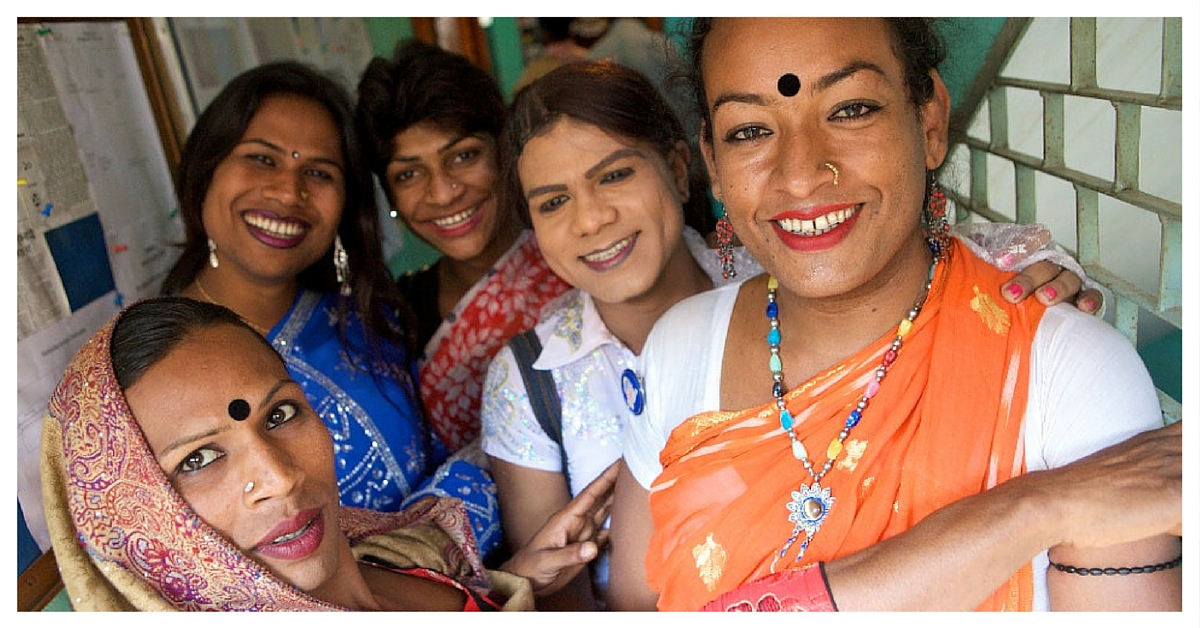Responsible Citizens: Transgenders Register to Vote as ‘Third Gender’ in Upcoming WB Elections
Two years after the SC introduced 'third gender' as an option, transgenders in West Bengal have come forward to register themselves for the upcoming elections in April.

In West Bengal, transgenders have a reason to celebrate: they are finally being accepted and identified by law as citizens with a right to vote. After a landmark judgment introducing an option for the third gender in electoral voting lists was passed in April 2014, many transgenders are coming forward to register for the upcoming elections in April 2016.
So far, only about 500 transgenders have their names enrolled in the voting list in West Bengal. While this is mainly in urban areas, it’s a great start and an inspiration for others in the country.
In 2009, the Election Commission had okayed an order to let transgenders vote by marking their gender as ‘other’.
But it was only in 2014, in a Supreme Court ruling, that India had officially granted them recognition as third gender.

During the Bihar polls shortly followed by the 2014 judgment, transgenders were still reluctant to vote. Their voter ID cards showed their gender as ‘other’, and the SC ruling had not yet been implemented in practice. Neither did it have any effect on the mindset of people around them.
Similarly in West Bengal, out of the 514 who registered in 2014, only 257 were eligible to vote in the ‘others’ category. Out of those, many of them did not turn up, fearing scrutiny. Many transgenders had identity card problems, as the gender in their Aadhaar cards and voter IDs did not match.
In an ironic state, the ruling in 2014 had put the transgenders in a paradox: while gay sex was still criminalised at that time, they were still allowed to legally vote. The ruling also stated that they were to be considered as ‘economically backward’, and be entitled for job reservations.
However, with India back to criminalising homosexuality in 2015, the paradox still exists.
Like this story? Or have something to share? Write to us: [email protected], or connect with us on Facebook and Twitter (@thebetterindia).

Similar Story

Want to Play a Role in Shaping India’s Climate Laws & Policies? Here’s a One-Stop Guide
Civis, a platform that enables citizens to participate in public consultations in the domain of environment and policy has released Climate Voices. This is a handbook and guide for Indians to participate in environmental law-making and play an active role in shaping our climate policies.
Read more >
If you found our stories insightful, informative, or even just enjoyable, we invite you to consider making a voluntary payment to support the work we do at The Better India. Your contribution helps us continue producing quality content that educates, inspires, and drives positive change.
Choose one of the payment options below for your contribution-
By paying for the stories you value, you directly contribute to sustaining our efforts focused on making a difference in the world. Together, let's ensure that impactful stories continue to be told and shared, enriching lives and communities alike.
Thank you for your support. Here are some frequently asked questions you might find helpful to know why you are contributing?


This story made me
-
97
-
121
-
89
-
167












